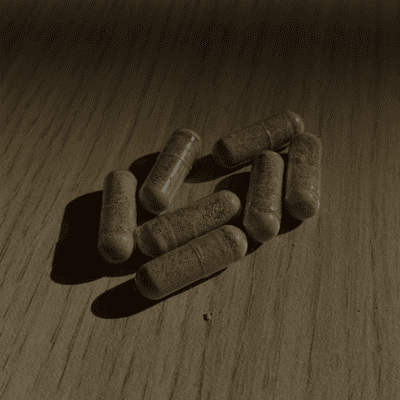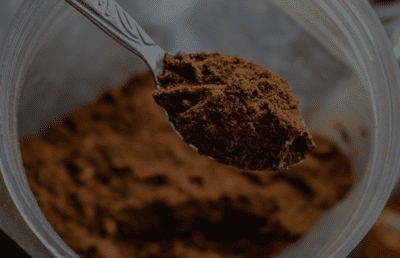Medicinal mushrooms have captured the attention of the medical field for several years thanks to their potential health benefits.
These amazing organisms could play a crucial role in treating autoimmune diseases, a group of conditions where the immune system mistakenly attacks the body's own cells and tissues.
This French Mush article explores how and why medicinal mushrooms are becoming a promising option for treating these complex conditions.
Understanding Autoimmune Diseases
Definition of autoimmune diseases
Autoimmune diseases occur when the immune system, which should normally protect against infections, begins to attack our body's own cells.
For example, in multiple sclerosis, the immune system attacks myelin, a substance that surrounds nerves.
Common symptoms
Symptoms vary greatly depending on the type of autoimmune disease but can include:
● Chronic fatigue
● Joint pain
● Rashes
● Fever
● Swelling of the glands
The role of medicinal mushrooms
Therapeutic properties of mushrooms
Many mushrooms contain polysaccharides, beta-glucans and other bioactive compounds that have shown immune-modulating effects.
These molecules can strengthen or calm the activity of the immune system, making it easier to restore the balance needed to prevent autoimmune attacks.
The hedgehog: a leading example
Hedgehog fungus , also known as lion's mane , is a type of mushroom often cited for its beneficial properties.
Studies indicate that this mushroom may improve cognitive functions and support nerve regeneration, which could be particularly helpful in diseases like multiple sclerosis.
Specific mushrooms and their applications
Reishi: immune moderation
Reishi is renowned for its ability to modulate the immune system rather than directly stimulating it.
This mushroom contains triterpenoids and polysaccharides that may help regulate excessive immune responses present in autoimmune diseases.
Shiitake: global health support
While Reishi focuses specifically on immune modulation, Shiitake mushroom is known to overall boost the immune system while providing essential nutrients, such as vitamins B and D , which support optimal immune system function.
Scientific studies and research
Clinical evidence
A growing body of clinical research supports the use of medicinal mushrooms for autoimmune conditions.
For example, controlled trials have shown that patients with rheumatoid arthritis had significant improvement in symptoms after taking Reishi extracts.
Perspectives futures
Although the evidence is promising, there is still much to discover. Future studies should evaluate the long-term efficacy and safety of medicinal mushrooms to better understand their full therapeutic potential.
Consumption and precautions
Forms of consumption
At French Mush, medicinal mushrooms can be consumed in different forms including:
1. Powders
2. Capsules or softgels
Precautions to take
It is crucial to consult a healthcare professional before incorporating medicinal mushrooms into a treatment regimen, especially as drug interactions or side effects may occur.
In conclusion
Medicinal mushrooms offer immense potential for the treatment of autoimmune diseases.
Their immunomodulatory properties and their various bioactive components open interesting horizons for establishing therapeutic approaches complementary to traditional treatments.
Sources :
Neurotrophic properties of the Lion's mane medicinal mushroom, Hericium erinaceus (Higher Basidiomycetes) from Malaysia, (1)https://pubmed.ncbi.nlm.nih.gov/24266378/
Neuroregenerative potential of lion's mane mushroom, Hericium erinaceus (Bull.: Fr.) Pers. (higher Basidiomycetes), in the treatment of peripheral nerve injury (review), (2)https://pubmed.ncbi.nlm.nih.gov/23510212/
Lion’s Mane Mushroom, Hericium erinaceus (Bull.: Fr.) Pers. Suppresses H2O2-Induced Oxidative Damage and LPS-Induced Inflammation in HT22 Hippocampal Neurons and BV2 Microglia, (3)https://www.ncbi.nlm.nih.gov/pmc/articles/PMC6720269/
Immunomodulatory effects of Hericium erinaceus derived polysaccharides are mediated by intestinal immunology, (4)https://pubmed.ncbi.nlm.nih.gov/28266682/
https://www.ncbi.nlm.nih.gov/books/NBK441999/ https://www.ncbi.nlm.nih.gov/pmc/articles/PMC5652455/ https://www.ncbi.nlm.nih.gov/pubmed/17219061 https://www.ncbi.nlm.nih.gov/pmc/articles/PMC3960732/ https://www.ncbi.nlm.nih.gov/pubmed/19651243
A review of mushrooms as a potential source of dietary vitamin D
G Cardwell, JF Bornman, AP James, LJ Black - Nutrients, 2018 - mdpi.com
The effect of moisture content on the conversion of ergosterol to vitamin D in shiitake mushrooms CO Perera, VJ Jasinghe, FL Ng… - Drying Technology, 2003 - Taylor & Francis
 All our Mushrooms
All our Mushrooms
 All our Boost drinks, coffee alternative
All our Boost drinks, coffee alternative
 Gummies Focus
Gummies Focus
 All our Packs
All our Packs














 Coffee Alternatives
Coffee Alternatives
 Metabolism and weight loss
Metabolism and weight loss
 Cognitive function
Cognitive function
 Energy
Energy
 Sleep and Relaxation
Sleep and Relaxation
 Women's Health
Women's Health
 Immunity
Immunity
 Beauty
Beauty
 Detox
Detox

















